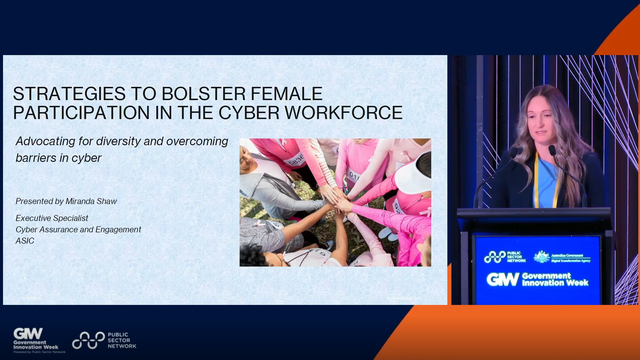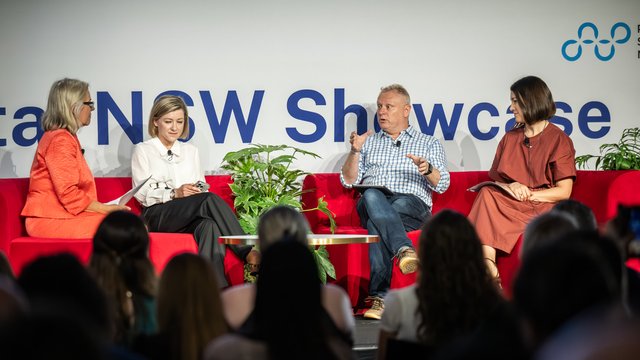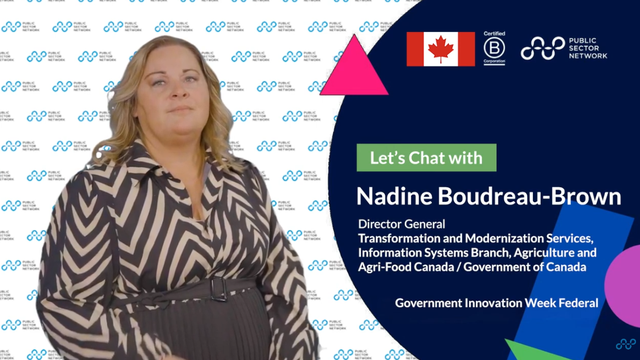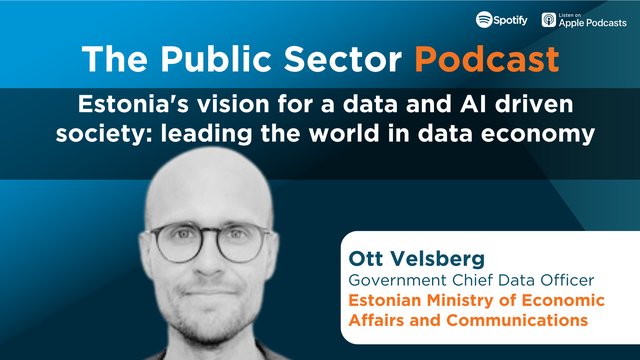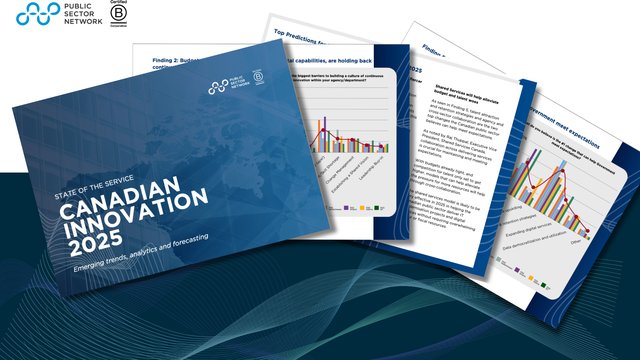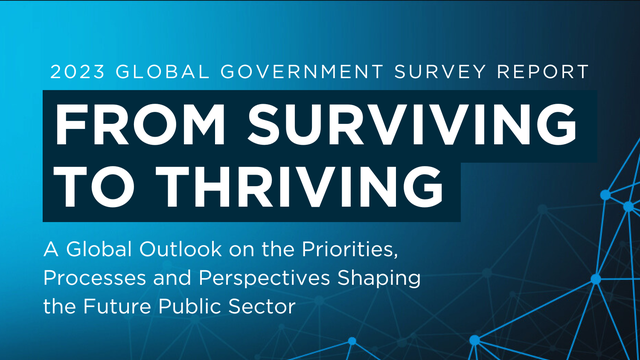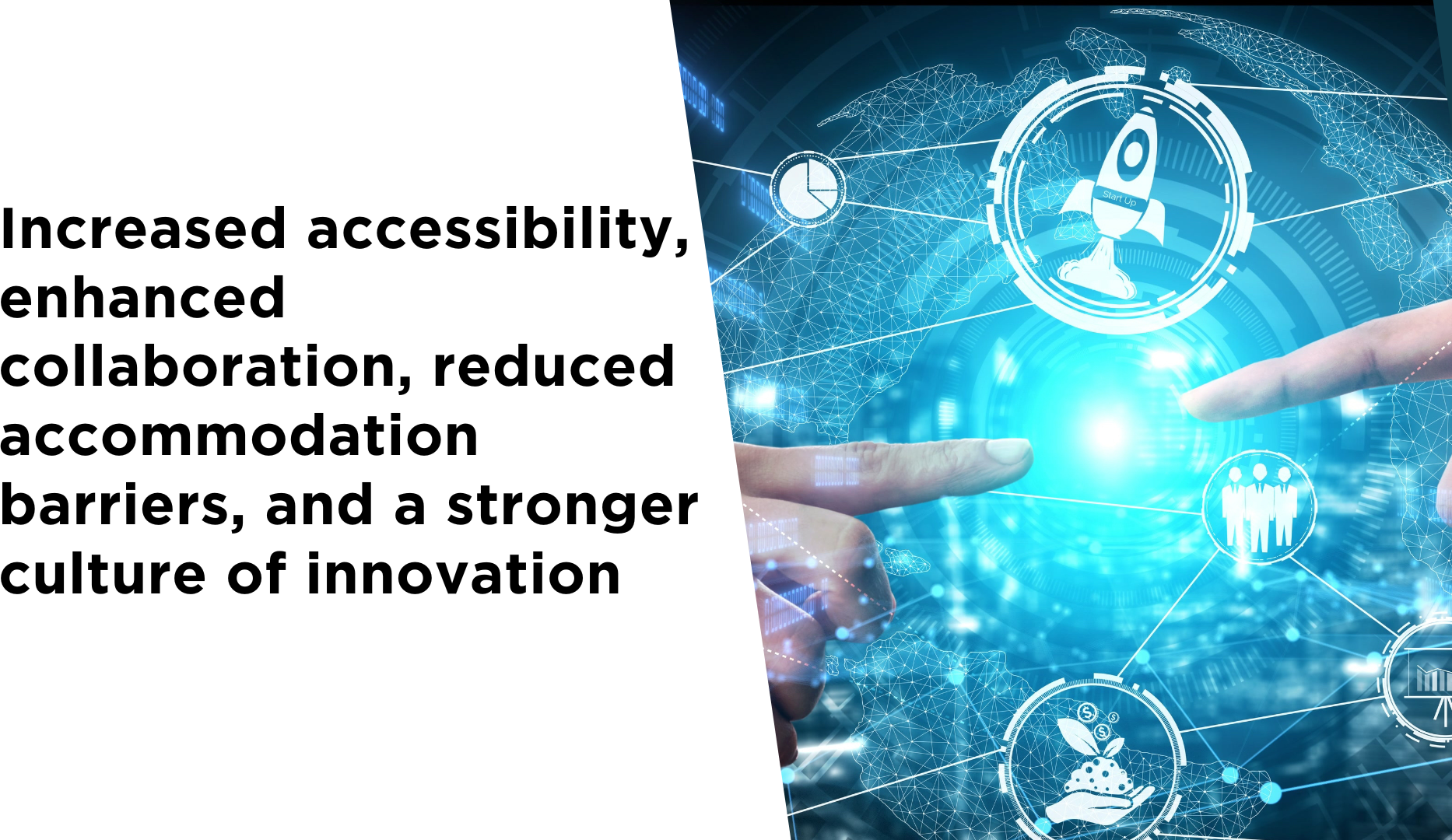
“At Agriculture and Agri-Food Canada, we realized that digital transformation isn’t just about adopting new tools—it’s about reshaping our culture. By centering inclusion, we’ve increased accessibility, reduced barriers, and fostered a stronger, more collaborative environment where innovation thrives.”
- Nadine Boudreau-Brown, Director General, Transformation and Modernization Services, Information Systems Branch, Agriculture and Agri-Food Canada / Government of Canada
Quick Facts
Organisation: Agriculture and Agri-Food Canada (AAFC)
Project Name: Inclusive Digital Workplace Modernisation
Established: Initiated during the COVID-19 pandemic
Main Objective: To build a seamless, inclusive, and modern digital work environment that supports diverse employee needs across various research, field, and office settings
Key Benefits: Increased accessibility, enhanced collaboration, reduced accommodation barriers, and a stronger culture of innovation
Project Milestones: Creation of a Digital Innovation Hub, network-wide engagement, deployment of Wi-Fi infrastructure and adaptive technologies
Future Vision: Empower employees through continuous innovation, inclusive design, and a human-centred approach to technology adoption
Organisational Context
Agriculture and Agri-Food Canada (AAFC) is a science-based department with approximately 7,000 employees spread across research centres, farms, and administrative offices. The variety of roles—from researchers and field workers to office staff—required a unified digital experience that prioritised inclusion and collaboration.
The department’s digital transformation journey began amid the COVID-19 pandemic, a period that fast-tracked remote work and digital experimentation. AAFC aimed to create a workplace where all employees could collaborate equitably—regardless of location, job type, or accessibility needs.
Challenges and Opportunities
Barriers to Inclusion and Collaboration:
Diverse work environments, including greenhouses, field sites, and labs, posed connectivity and infrastructure challenges.
Employees with disabilities faced delays in receiving adaptive technology due to bureaucratic processes and limited awareness.
Digital transformation efforts risked overlooking those with learning accommodations or different technology comfort levels.
Legacy support models and a lack of user-driven design limited engagement and effective service delivery.
Turning Challenges into Opportunities:
The department recognised that modernisation was not just a technical shift—but a cultural one. By embedding inclusive design, empowering users, and breaking down internal silos, AAFC embraced a human-centred model for workplace innovation.
Solution: Inclusive, Agile and Employee-Led Transformation
AAFC developed a comprehensive modernisation strategy grounded in accessibility, experimentation, and continuous learning. Key initiatives included:
Digital Innovation Hub: A repurposed space became a hands-on testing environment for staff to explore new technologies, including adaptive equipment and collaborative tools.
Wi-Fi & Infrastructure Upgrades: Campus-wide network enhancements connected greenhouses, remote offices, and research fields—improving data collection and collaboration in real time.
Skills Labs & Change Maker Networks: Staff champions were engaged early to trial tools, support peers, and build a culture of adoption and curiosity.
Adaptive Tech Fast-Track: In partnership with HR and accessibility offices, AAFC simplified the accommodation process. Students and staff could now use existing learning plans, bypassing unnecessary bureaucracy.
Inclusive Support Model: Walk-in tech kiosks modelled after consumer retail experiences provided immediate, human support—especially useful for staff adjusting to hybrid work setups.
Implementation and Impact
1. Reducing Accommodation Delays
AAFC streamlined its adaptive technology processes by removing unnecessary medical documentation and empowering managers to act without fear of non-compliance. Result: Reduced frustration and faster access to the tools employees needed.
2. Building a Culture of Experimentation
With spaces to test and fail safely—such as the Digital Innovation Hub—staff became more willing to explore new tools, share feedback, and co-create solutions. This led to improved service delivery and a more responsive IT environment.
3. Data-Driven Decision Making
“Digital health” dashboards allowed AAFC to monitor the status of each site’s connectivity and user engagement, helping leadership prioritise investments and troubleshoot issues before they escalated.
4. Advancing Collaboration and Learning
Accessible digital tools enabled cross-site collaboration, while ongoing AI and tech skills workshops—particularly through networks like Women in STEM—fuelled excitement and inclusivity around digital adoption.
Future Outlook: Sustaining Human-Centred Innovation
AAFC’s transformation continues to evolve. Its future strategy focuses on:
Scalable Adaptive Tech Kits: Mobile units rotate across Canada, giving staff hands-on experience with new assistive technologies before committing to a purchase.
User-Driven Support: Continued focus on walk-in, informal support keeps IT approachable, while data insights guide service delivery.
Inclusive Innovation Pipelines: Teams now co-design with end users—ensuring that every tool or process meets real needs.
Cultural Shift: The emphasis on experimentation, learning, and inclusion is becoming ingrained in how projects are launched and supported.
Lessons Learned and Key Takeaways
✅ Inclusion by Design – Accessibility must be built in from the beginning—not retrofitted later.
✅ Empower the End User – Let employees choose and test what works for them.
✅ Break the Silos – Early, frequent collaboration across IT, HR, and procurement builds better outcomes.
✅ Support Experimentation – Create safe spaces for learning, failure, and iteration.
✅ Measure What Matters – User feedback and digital health data are critical to continuous improvement.
Path Forward
AAFC’s modernisation journey is a blueprint for inclusive digital transformation in the public sector. By combining adaptive technologies, responsive support, and strong user engagement, the department is not just modernising IT—it’s transforming the workplace into one where all employees can thrive.


